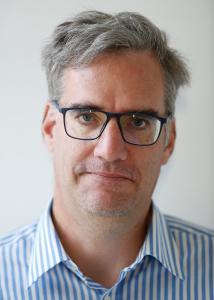Mali has imposed more and more restrictions on flights or even land patrols since the Russians arrived - whole regions in the north have been closed to MINUSMA, apparently because the Wagner mercenaries and the Malian army do not want spectators: They are repeatedly accused of human rights violations and killings of civilians. As a result, all Western troop contributors to the UN mission MINUSMA have announced their withdrawal because of these problems. It became increasingly lonely for the Bundeswehr, the largest troop contributor with up to 1,300 soldiers, to hold out until the end. When Mali also stopped the flights of the Heron reconnaissance drone - a core task of the Bundeswehr - in October, the government pulled the ripcord and decided to withdraw by May 2024. The German government had hesitated with this until the very end because the future of MINUSMA without the Bundeswehr seems uncertain. But in view of the problems and not least because of the withdrawal of other Western troop contributors such as Great Britain, there was concern about whether the withdrawal could still be secured if the Bundeswehr was the last to leave.
Mali could also postpone the elections planned for February 2024 - which would also remove the justification for the soldiers to secure them. There are indications that Mali is not keeping to the timetable agreed with the West African community of states ECOWAS for elections in February 2024. A constitutional referendum is supposed to take place in March 2023, but there is still no final draft a month before the deadline. A government official already triggered speculation about a postponement of the referendum by saying that the timetable must reflect realities. Mali's military government had already cancelled the elections originally planned for February 2022. A first draft of the constitution was rejected by most parties and civil society because it strengthened presidential power - it read like a draft tailor-made for President Assimi Goïta. Goïta has reserved the right for himself to run for president. But the mood among the population is bad because the war of aggression on Ukraine has made the import of petrol and food more expensive. Moreover, military cooperation with Russia has further worsened the security situation. The government could lose the elections - this would certainly be a motive to work towards postponing them.
The withdrawal of the Bundeswehr will cause major problems for MINUSMA - the mission will have to scale down its operations and abandon smaller bases. The reason: the Bundeswehr is currently securing mission supply convoys with rescue helicopters in order to supply the Gao base and other bases with food and equipment. Previously, this had been done by the Malian army. Since the mission has been hampered by the Malian government, however, MINUSMA has largely been left to its own devices. With the withdrawal of the Bundeswehr helicopters, MINUSMA will have difficulties continuing to supply more remote locations such as Tessalit or Kidal. The mission is currently trying to find replacements. So far, Bangladesh and Nepal have agreed to send helicopters. To this end, the city of Gao will become altogether less secure with the withdrawal of the Bundeswehr. So far, the city is still considered relatively safe thanks to MINUSMA patrols - in contrast to rural areas, where the Islamic State has been on the rise since the departure of the French and the al-Qaida-associated organisation JNIM also holds power over large areas.
The full-length publication is only available in German.




